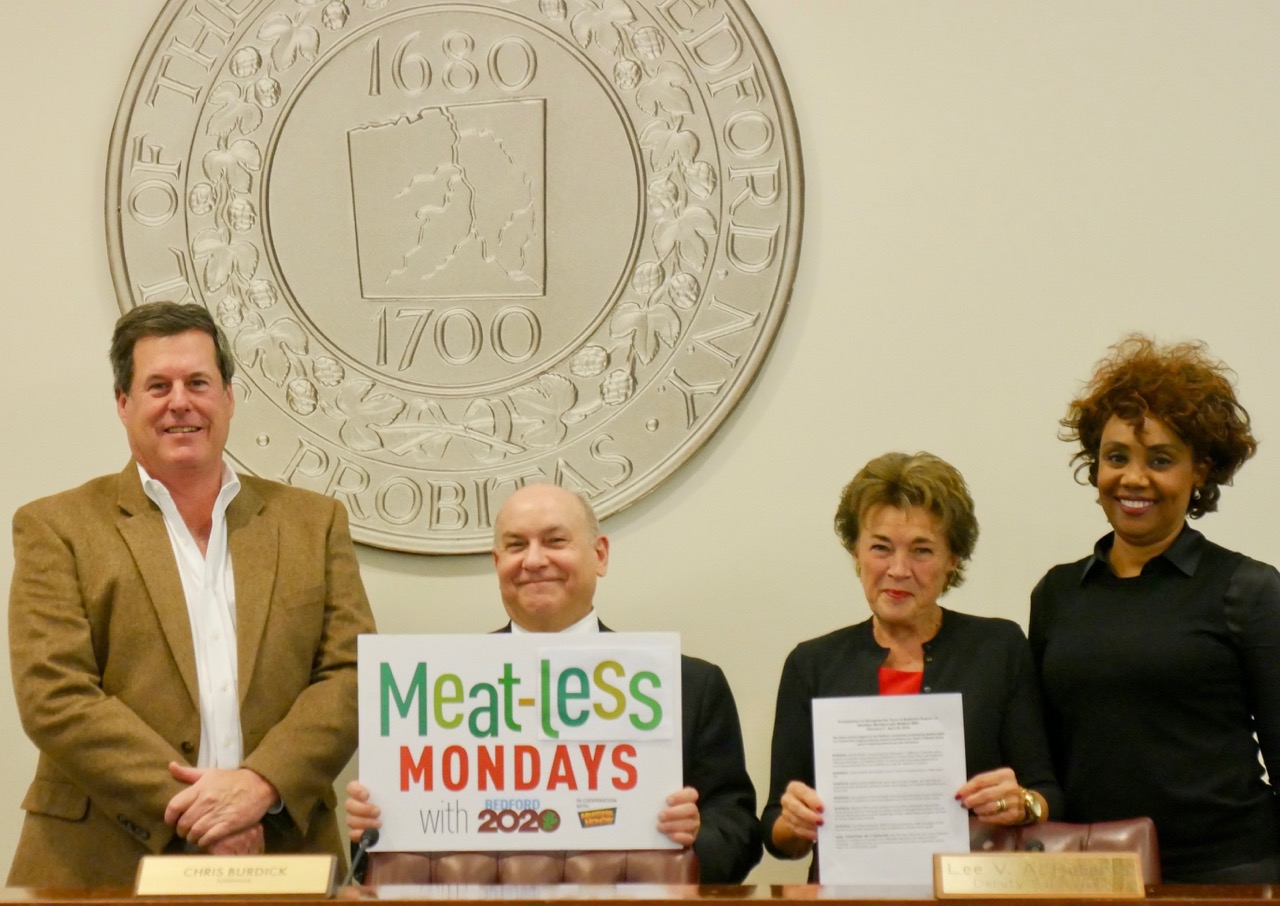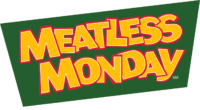Meatless Monday Challenge: Bedford Community Case Study
Meatless Monday is a healthy and delicious way to encourage plant-based eating in cities, towns, and municipalities of all sizes. The initiative, which calls for swapping out meat for plant-based meals one day a week, can also be used by communities to achieve sustainability goals.
In Bedford, New York, a suburb just outside of New York City, a group of volunteers working with the Bedford 2020 organization promoted Meatless Monday as part of their larger environmental sustainability initiative. The group encouraged restaurants, businesses, hospitals, places of worship, and school cafeterias to offer meatless options on Monday. After the 12-week campaign, the Bedford community reduced their collective carbon footprint by 22,894.08 kg (the equivalent of driving 56,1113 fewer miles) and the commitment to reducing meat consumption remains strong.

Program Overview:
More than 300 households in Bedford, New York took the Bedford 2020 Meatless Monday challenge as part of a larger community 2020 Climate Action Plan. Johns Hopkins Center for a Livable Future (CLF) and Meatless Monday, a concept of The Monday Campaign’s, provided the Bedford 2020 program with a collection of science-based and promotional materials to raise awareness of meat production’s impact on the environment and personal health.
Read the full publication about the Bedford Meatless Monday program here.
Lead Collaborative Partner(s):
The town of Bedford, New York, Bedford 2020 (an environmental grassroots organization), and Johns Hopkins Center for a Livable Future (CLF).
Duration:
The 12-week program ran from February 5 – April 23, 2018.
Target Audience:
Residents of Bedford, New York. The town is located in Westchester County and has a current population of approximately 17,000.
Program Implementation:
The town of Bedford adopted a Meatless Monday resolution as part of a broader Bedford 2020 plan encouraging local residents, businesses, schools, and restaurants to “cut out meat” every Monday for the duration of the 12-week challenge. Bedford 2020 used Meatless Monday informational resources to launch educational campaigns that would resonate with an audience possessing a range of environmental- and health-literacy. Outreach also involved Bedford restaurant partners advertising their Meatless Monday meal offerings in local papers.
Resources Offered:
Meatless Monday provided a suite of environmental education and promotional materials, including social media assets, posters and how-to guides for local business/schools/restaurants that wanted to participate. Additionally, Meatless Monday developed a community communications package that included recipes, tips and a weekly newsletter sign-up. CLF conducted several surveys to assess the pre-and-post results to quantify the number of households participating in Meatless Monday challenge and evaluate behavior change.
Outcome:
Over the nine months in which the analysis was conducted, there was significant and persistent reductions in the frequency at which households consumed meat, even after the conclusion of the 12-week campaign. A post-challenge CLF survey showed that 74 percent of respondents said the Meatless Monday Challenge raised their understanding of how food choices affect climate. By participating in the Meatless Monday Challenge reduced the community carbon footprint by 22,894.08 kg CO2e. This is equivalent to driving 56,113 less miles. These changes in behavior coincided with significant increases in residents’ perceived abilities to prepare and order plant-based options, which were often attributed to elevated concerns over climate change, improvements in their own proficiencies as cooks, as well as the changes to their local food environment that made plant-based options more enticing and readily available.
The full version of the study, published in The Journal of Agriculture, Food Systems, and Community Development, can be found here.
Learn how other cities and communities across the globe use Meatless Monday to inspire healthy, sustainable, plant-based eating.
